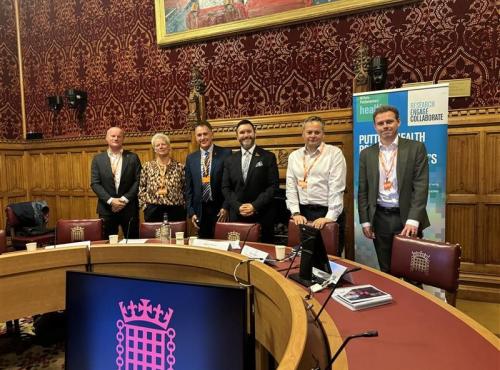Carbon monoxide in the next Parliament
New tools for housing regulation, ambitious energy efficiency programmes, and support for low-carbon fuels; these broad policy consensuses set the tone for carbon monoxide (CO) safety in the next Parliament. Yet this top-level consensus in party manifestos masks a universal lack of CO-specific policy proposals as Policy Connect calls on all parties to tackle this ‘silent killer’.
This election began with some remarkably harmonised proposals for landlord-tenant relations, as all major parties have committed to abolishing Section 21, which allows no-fault evictions and can discourage tenants from reporting substandard housing conditions. This is encouraging and we anticipate this will give tenants more power to challenge landlords that don’t adhere to CO-safety obligations, such as annual appliance servicing by a registered engineer. The Labour Party and Liberal Democrat manifestos go further by proposing mandatory licencing of all landlords, a policy already being implemented by a number of Local Authorities.
Better enforcement of rental standards is critical to improving CO safety and it is encouraging to see all parties recognise the need for improvement. However, to be successful these manifesto proposals must be combined with additional funding for Local Authorities who struggle to implement existing regulations. Additionally, the legislation being enforced must be robust and comprehensive of all aspects of home safety, including CO safety provisions such as CO alarms.
The major parties are also supporting improving household energy efficiency in order to lower energy bills and help reduce fuel poverty. It is encouraging to see the Green Party, Liberal Democrat, and Labour Party manifestos explicitly discuss the importance of ending fuel poverty, as living in fuel poverty increases a household’s risk of CO poisoning. You can learn more about Policy Connect’s work on energy efficiency by reading Joanna Furtado’s article.
Lastly, all the manifestos include commitments to support the development of low-carbon energy and heat, with most parties acknowledging a role for hydrogen. Beyond their obvious utility towards achieving Net Zero, low-carbon fuels should reduce the risk of CO poisoning by lowering our usage of carbon. However, the parties must also ensure the cost of decarbonising heat is not prohibitively expensive for low-income households, as this could lock them in fuel poverty using decreasingly-supported fuels. Policy Connect’s latest report looks into the decarbonisation of heat in more detail and can be read here.
Overall, we welcome the cross-party attention being paid to issues that contribute to CO safety, including: regulation of rental properties; energy efficiency; and low-carbon fuel. However, the manifestos do not feature any CO-specific policy proposals, with the closest being the Conservative Party’s commitment to introducing a Social Housing White Paper, a policy already announced before the election. For this reason Policy Connect hopes to see the new government adopt our recommendations for preventing CO poisoning and commit to expanding CO alarm requirements to all tenures.



